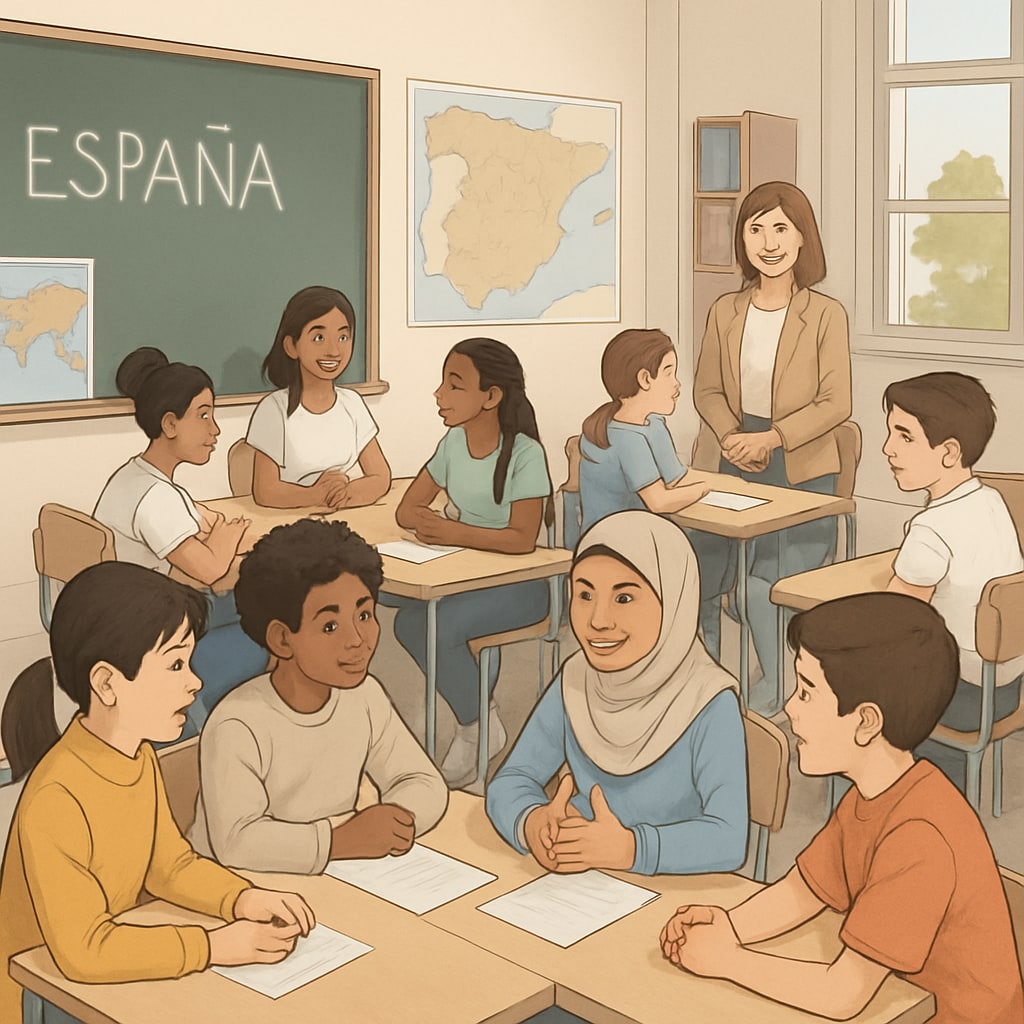With globalization reshaping societal norms, studying abroad is becoming a key milestone in achieving personal and professional growth. For individuals like Azerbaijanis planning to pursue a master’s degree in Spain, the journey involves not just academic preparation but also cultural adaptation and social integration. This makes adaptability and cross-cultural competence essential skills. By focusing on these aspects during the K12 education phase, students can be better prepared for the unique challenges and opportunities of studying, living, and thriving abroad.

Preparing for Global Opportunities Through K12 Education
Developing international adaptability and cultural competence starts early. The K12 education system plays a pivotal role in equipping students with the tools they need to succeed in cross-cultural environments. Schools can integrate global perspectives into their curricula by:
- Language Learning: Introducing foreign languages, such as Spanish, into the curriculum to build communication skills.
- Interdisciplinary Studies: Including courses on history, geography, and cultural studies from diverse regions.
- Exchange Programs: Offering opportunities for students to interact with peers from different countries.
For instance, learning Spanish during K12 ensures that students not only understand the language but also the nuances of Spanish culture. This linguistic and cultural competence becomes invaluable when transitioning to life in Spain.
Adapting to Life and Education in Spain
Moving to Spain for higher education demands more than academic preparation—it requires a deep understanding of the local culture and social norms. Azerbaijanis, or students from any background, can ease this transition by:
- Participating in Cultural Immersion Activities: Engaging with local communities through festivals, volunteer programs, or student organizations.
- Understanding Academic Expectations: Spanish universities often emphasize collaboration and practical learning, which might differ from traditional systems in Azerbaijan.
- Building a Support Network: Connecting with fellow international students and local mentors can provide emotional and practical support.

For example, festivals like La Tomatina or Semana Santa provide excellent opportunities for international students to connect with the Spanish way of life. Understanding such cultural traditions fosters a sense of belonging and enhances adaptability.
The Role of Cross-Cultural Skills in Career Growth
Developing cross-cultural adaptability during K12 and university years does not just benefit students academically or socially—it also has long-term career implications. Employers increasingly value individuals who can navigate diverse work environments and communicate effectively across cultures. Studying in Spain offers a unique chance to build these skills while gaining an internationally recognized degree.
Moreover, Azerbaijanis who return home after studying abroad often find themselves better equipped to contribute to their local communities, leveraging their global insights to drive innovation and collaboration. For those who choose to stay abroad, their adaptability skills ensure smoother integration into professional networks and opportunities in Spain or other countries.
Conclusion: Building Global Citizens
K12 education is the foundation for preparing students to thrive in a globalized world. By fostering language skills, cultural awareness, and adaptability, schools can set students on a path to success in international environments. For Azerbaijanis considering studying abroad in Spain, these early preparations are critical in ensuring a smooth transition to their new academic and social lives. Ultimately, the journey of studying abroad is not just about earning a degree—it’s about becoming a global citizen.
Readability guidance: The article uses short paragraphs and lists to summarize key points. Transition words are integrated for better flow, and active voice is prioritized. Images are suggested at relevant sections to enhance the article’s engagement.


